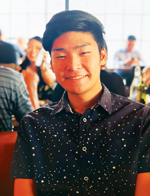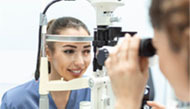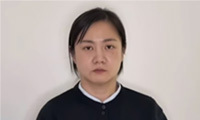Detecting Alzheimer’s with a Computer Program?

Brian Lee/ Diamond Bar High School 11th Grade
But, what if there was a way to catch Alzheimer’s early, and nearly every time too.
Through the work of Jae Ho Sohn and his research team at UCSF, an artificial intelligence program was created with the purpose of diagnosing Alzheimer’s in its earlier, more controllable stages. Here’s how it works: cells need energy, or glucose, in order to function. When brain cells die as a result of Alzheimer’s or any other neurodegenerative disease, the amount of glucose found in the brain will be lower as a result. So, the A.I. looks for this lower level of glucose, which is not easily perceivable by humans, to diagnose Alzheimer’s early.
In fact, this A.I. actually learns from the previous cases that it has “studied” and because it has a perfect memory and process as opposed to humans, it can apply that previous knowledge to its maximum capacity to increase its performance. In Sohn’s study, 1,921 brain scans, taken years before actual diagnosis, were used to evaluate the effectiveness of the program. On its first run, the program correctly identified 92% of the scans that would end up developing Alzheimer’s and on its second run, the A.I. was correct on 98% of the scans. Even more surprising, the brains that were correctly identified as developing Alzheimer’s were scans from 75.8 months before diagnosis.
Nearly 6 million people are affected with Alzheimer’s in the United States alone. This neurological disease affects their everyday function and the likelihood of their future existing. With the advent of this technological innovation, Alzheimer’s could be checked on with little to no hassle on a regular basis and perhaps the 6 million people affected today will be the last generation to catch Alzheimer’s too late. With these precise mechanisms sophisticated enough to notice what seems to be trivial deficits in dopamine, Alzheimer’s may not be the long and drawn out death sentence that it is today.
<Brian Lee/ Diamond Bar High School 11th Grade>
스마터리빙
more [ 건강]
[ 건강]이제 혈관 건강도 챙기자!
[현대해운]우리 눈에 보이지 않기 때문에 혈관 건강을 챙기는 것은 결코 쉽지 않은데요. 여러분은 혈관 건강을 유지하기 위해 어떤 노력을 하시나요?
 [ 건강]
[ 건강]내 몸이 건강해지는 과일궁합
 [ 라이프]
[ 라이프]벌레야 물럿거라! 천연 해충제 만들기
 [ 건강]
[ 건강]혈압 낮추는데 좋은 식품
[현대해운]혈관 건강은 주로 노화가 진행되면서 지켜야 할 문제라고 인식되어 왔습니다. 최근 생활 패턴과 식생활의 변화로 혈관의 노화 진행이 빨라지고
사람·사람들
more
[송년행사 화보] “한 해를 마무리하며… 화기애애한 송년의 순간들”
LA 러너스클럽LA 러너스클럽(회장 김두병)은 13일 작가의 집에서 80여명의 회원과 가족이 참석한 가운데 송년회를 마쳤다. 2007년 창립된…

[송년행사 화보] “웃음과 감사 가득 ‘훈훈’… 함께해서 행복”
한국학교총연합회미주한국학교총연합회(회장 이영숙)가 주최한 제43회 장기 근속교사 포상 및 송년의 밤 행사가 140여명의 교사들이 참석한 가운데…
[송년행사 화보] “친구야 반갑다… 선배님들 모두…
경남중고경남중·고등학교 남가주 동창회(회장 예해덕)는 지난 6일 송년회를 열고 동문 및 가족 60여 명이 참석한 가운데 끈끈한 우정을 확인했다…
송년행사 게시판
월남전 참전자회월남전 참전자회 캘리포니아지회(회장 김종식)가 오는 17일(수) 오전 11시 LA 한인타운 해피음악원(2426 W. 8th St…
[송년행사 화보] “올 한 해 보람 가득… 내년에…
서강대남가주 서강대 동문회(회장 이정은·이사장 이찬근)의 2025년 정기총회 및 송년의 밤 행사가 지난 6일 웨스트리지 골프클럽에서 열렸다. …
많이 본 기사
- 출퇴근길에 갇힌 한인들… ‘시간·건강·돈’ 삼중고
- 캘리포니아 플라스틱백 퇴출 앞두고… 대형 체인, 종이봉투로 속속 전환
- 취임 1년 앞두고 기세 꺾인 트럼프
- 노로바이러스 변종 확산 어린이·고령자 감염 주의
- “뜨거운 음료 사 와서, 후배 때려”..팝핀현준 ‘폭행 미투’ 터졌다
- 신년 전야 남가주 폭탄 테러 모의… 4명 체포
- 연말연시 여행객 사상 최대 전망
- 송미숙 뉴저지한인회장 선출
- ‘만취 실신’ 라쿤 알고보니 ‘상습범’
- 워싱턴 일원 유대인 커뮤니티 ‘비상’
- 에어프레미아, 연말 할인 프로모션
- 미 전국서 50세 이상 살기 좋은 곳
- 한인 팔레스타인 활동가 체포
- 워싱턴 지상사 송년회
- “날씨는 춥고 일자리는 없네요”
- 25년이상 운영‘식당’에 세제혜택 추진
- 어준호군 크로스 컨추리 11세 부문서 1등 차지
- 시드니 총격 테러 IS 연관 수사확대
- “경제·일자리·생활비 심각하다”
- LAPD 증원… 시장과 시의회 정면충돌
- 재미동포연합 워싱턴지역회 송년회
- 이화여대 워싱턴 DC 지회 동창회 송년모임
- 한국외국어대학교 뉴욕동문회
- 오민선 작품‘월드뱅크’에 걸린다
- 뉴욕지구 한국대학동문총연
- VA 맥클린 일대 주택 털려던 절도범 붙잡혀
- VA·MD 교사 부족사태 크게 개선
- 워싱턴한인마라톤클럽 송년모임
- 글로리아 크로마하프단, 송년회
- 노인 가장 살기 좋은 전국 중소도시 NJ 클립사이드팍 1위·포트리 2위
- 레이븐스, 벵골스 24-0 완파
- VA 주하원 11지구 민주당 경선 오늘
- 대한민국월남참전자회 뉴욕지회
- 뉴스타부동산그룹, 창립 37주년 송년모임·시상식 성료
- “새해에도 함께 도약하자”
- 불법이민자 추방 작전에 항공기 승객 정보까지 활용
- “피고소만 5건” 박나래 ‘주사이모’ 고발 건, 검찰서 경찰로 이첩..왜?
- 칠레도 휩쓴 우파 물결… ‘트럼프 닮은꼴’ 카스트 당선
- ‘주님 보시기에 부끄럽지 않은 삶이길’… 11학년 강지은 특별상
- 착한 일만 하면 천국 간다?… 교인 상당수 기독교 교리 배치 믿음
- 전원주 “숙대 졸업 후 앞치마 입는 연기만..부끄러웠다” 고백
- ‘해리가 샐리를 만났을 때’ 감독 부부 피살
- 은퇴 이후를 지탱하는 소득 구조의 과제
- 중일 갈등… 일본 54년 만에 ‘판다 제로’
- 로봇청소기 ‘아이로봇’ 파산보호 신청
- 뉴욕 센트럴파크에 ‘뷔 벤치’ 생겼다
- 젤렌스키 ‘나토가입 포기’ 시사 “확실한 안전 보장 있어야”
- [존청 변호사의 “경제·법률 핫이슈”] 세금으로 사라질 돈… ‘가족 재단’으로 유산 만든다
- 햄닛과 햄릿, 그 죽음에 대한 명상
- 모기지 금리, 내년에도 인하 ‘찔끔’ 전망
1/5지식톡

-
 ☝️해외에서도 가능한 한국어 선생님…
0
☝️해외에서도 가능한 한국어 선생님…
0이 영상 하나면 충분합니다!♥️상담신청문의♥️☝️ 문의 폭주로 '선착순 상담'만 진행합니다.☎️ : 02-6213-9094✨카카오톡ID : @GOODEDU77 (@골뱅이 꼭 붙여주셔야합니다…
-
 테슬라 자동차 시트커버 장착
0
테슬라 자동차 시트커버 장착
0테슬라 시트커버, 사놓고 아직 못 씌우셨죠?장착이 생각보다 쉽지 않습니다.20년 경력 전문가에게 맡기세요 — 깔끔하고 딱 맞게 장착해드립니다!장착비용:앞좌석: $40뒷좌석: $60앞·뒷좌석 …
-
 식당용 부탄가스
0
식당용 부탄가스
0식당용 부탄가스 홀세일 합니다 로스앤젤레스 다운타운 픽업 가능 안녕 하세요?강아지 & 고양이 모든 애완동물 / 반려동물 식품 & 모든 애완동물/반려동물 관련 제품들 전문적으로 홀세일/취급하는 회사 입니다 100% …
-
 ACSL 국제 컴퓨터 과학 대회, …
0
ACSL 국제 컴퓨터 과학 대회, …
0웹사이트 : www.eduspot.co.kr 카카오톡 상담하기 : https://pf.kakao.com/_BEQWxb블로그 : https://blog.naver.com/eduspotmain안녕하세요, 에듀스팟입니다…
-
 바디프렌드 안마의자 창고 리퍼브 세…
0
바디프렌드 안마의자 창고 리퍼브 세…
0거의 새제품급 리퍼브 안마의자 대방출 한다고 합니다!8월 23일(토)…24일(일) 단 이틀!특가 판매가Famille: $500 ~ $1,000Falcon: $1,500 ~ $2,500픽업 & 배송직접 픽업 가능LA…
케이타운 1번가
오피니언
 노세희 부국장대우·사회부장
노세희 부국장대우·사회부장 커뮤니티 재단과 한인사회의 미래
 민경훈 논설위원
민경훈 논설위원햄닛과 햄릿, 그 죽음에 대한 명상
 한형석 사회부 부장대우
한형석 사회부 부장대우 연말, 사기범들의 최대 성수기
 정유환 수필가
정유환 수필가 [화요칼럼] 크리스마스 트리의 추억
 이영창 / 한국일보
이영창 / 한국일보 [지평선] 대통령의 ‘디테일’ 욕심
 이생진
이생진 ‘벌레 먹은 나뭇잎’
 옥세철 논설위원
옥세철 논설위원오늘의 베네수엘라가 내일의 동아시아국가…

퇴조의 핑크 타이드
 조지 F·윌 워싱턴포스트 칼럼니스트
조지 F·윌 워싱턴포스트 칼럼니스트 [조지 F. 윌 칼럼] 대통령의 전쟁수행권
1/3지사별 뉴스

송미숙 뉴저지한인회장 선출
32대 뉴저지한인회장에 송미숙 전 뉴저지한인회 이사장이 선출됐다.뉴저지한인회선거관리위원회는 15일 선관위 사무실에서 32대 회장선거에 단독 입…
25년이상 운영‘식당’에 세제혜택 추진

워싱턴 일원 유대인 커뮤니티 ‘비상’
지난 14일 호주에서 유대인들을 대상으로 대규모 총기 난사 사건이 발생한 가운데, 워싱턴 일원 유대인 커뮤니티를 중심으로 경찰 경비가 대폭 강…
미 전국서 50세 이상 살기 좋은 곳

트럼프, 합성마약 펜타닐을 ‘대량살상무기’로 지정
도널드 트럼프 대통령은 15일 신종 합성마약으로 미국에 대량 유입된 펜타닐을 ‘대량살상무기’(WMD)로 지정했다.트럼프 대통령은 이날 백악관에…
‘우미노시즈쿠 후코이단’ 감사 이벤트

오늘 하루 이 창 열지 않음 닫기 



















































.png)


댓글 안에 당신의 성숙함도 담아 주세요.
'오늘의 한마디'는 기사에 대하여 자신의 생각을 말하고 남의 생각을 들으며 서로 다양한 의견을 나누는 공간입니다. 그러나 간혹 불건전한 내용을 올리시는 분들이 계셔서 건전한 인터넷문화 정착을 위해 아래와 같은 운영원칙을 적용합니다.
자체 모니터링을 통해 아래에 해당하는 내용이 포함된 댓글이 발견되면 예고없이 삭제 조치를 하겠습니다.
불건전한 댓글을 올리거나, 이름에 비속어 및 상대방의 불쾌감을 주는 단어를 사용, 유명인 또는 특정 일반인을 사칭하는 경우 이용에 대한 차단 제재를 받을 수 있습니다. 차단될 경우, 일주일간 댓글을 달수 없게 됩니다.
명예훼손, 개인정보 유출, 욕설 등 법률에 위반되는 댓글은 관계 법령에 의거 민형사상 처벌을 받을 수 있으니 이용에 주의를 부탁드립니다.
Close
x